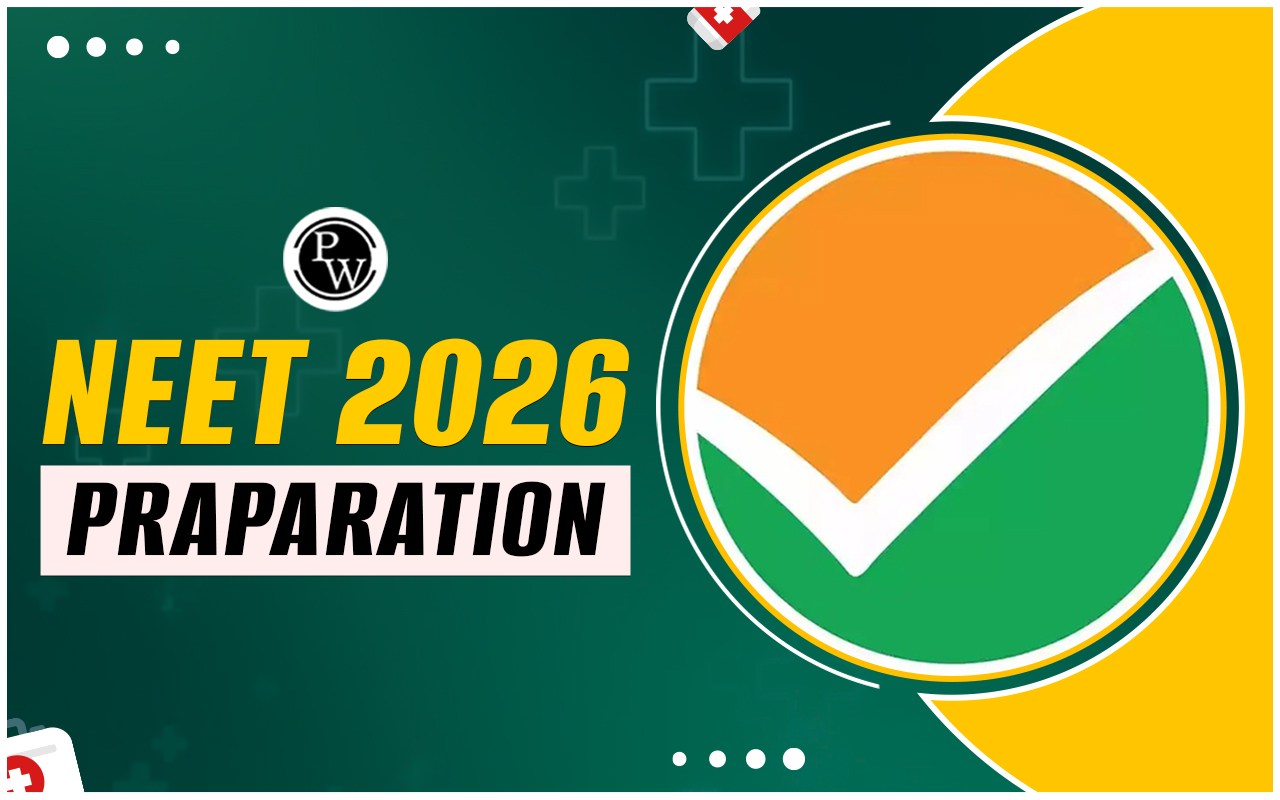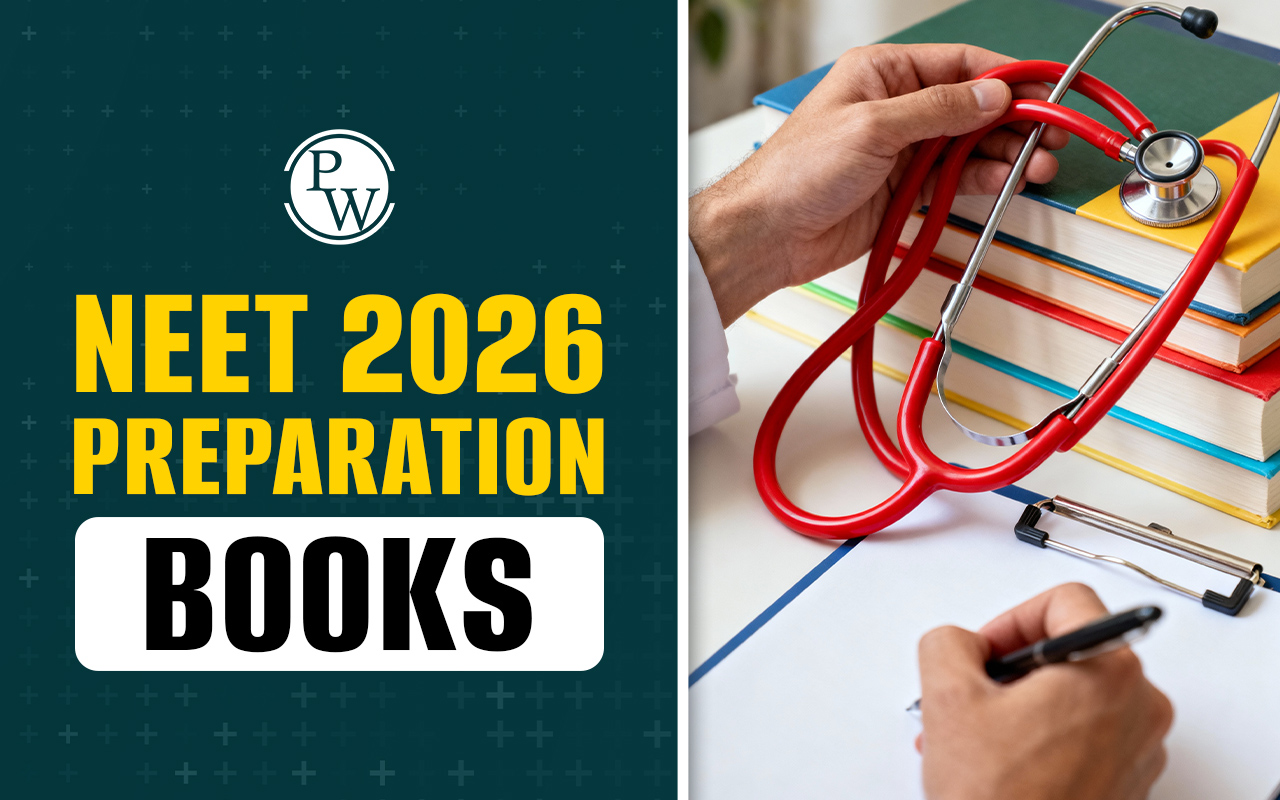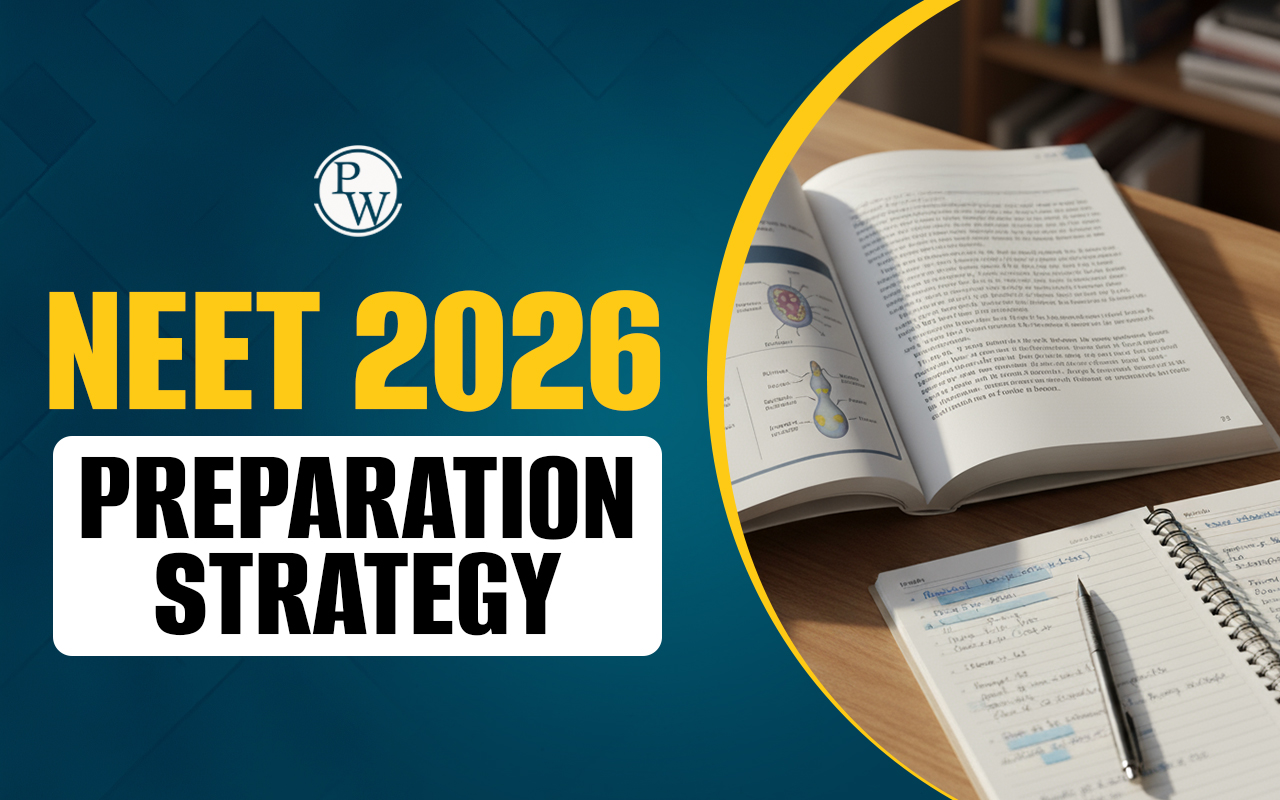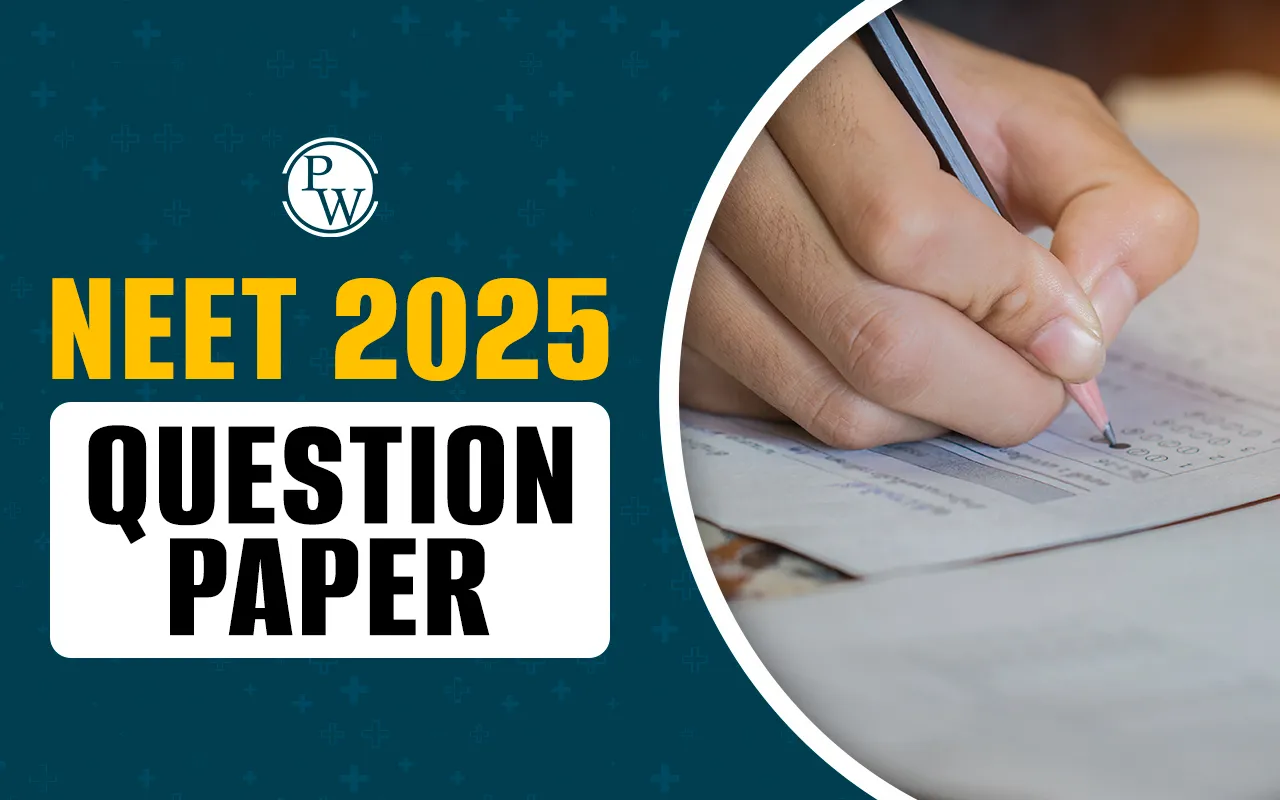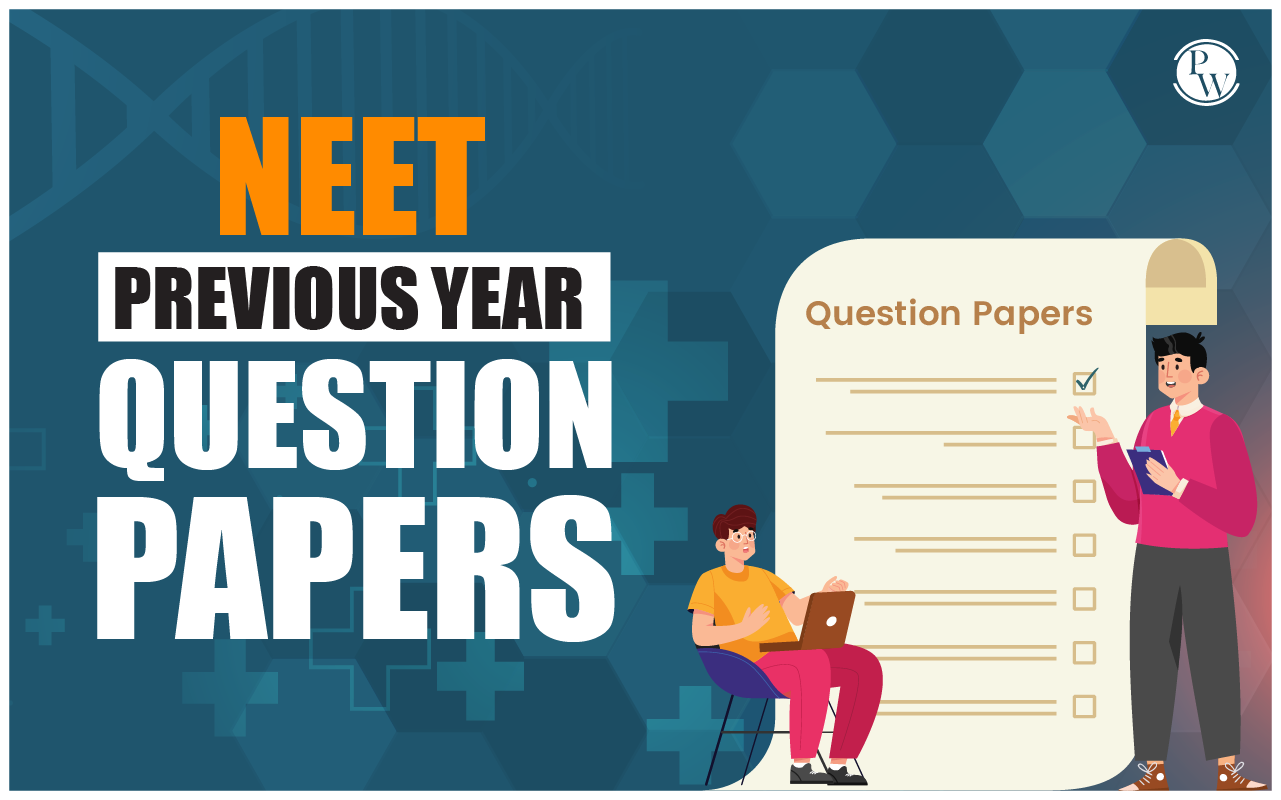
9 Months Study Plan for NEET 2026 provides students with a structured preparation method to complete NEET preparation in less than one year. NEET is one of the most competitive exams for admission to MBBS and other medical courses in India. The NEET exam tests students on the complete syllabus of Biology, Physics, and Chemistry for Classes 11 and 12. Effective NEET preparation requires students to develop strong conceptual un1derstanding through consistent practice and proper time management. The 9 Months Study Plan for NEET 2026 aims to help the students in breaking down their nine months into phases, which are for learning, practising and revising. This will help the students to work on their weak topics, improve on their strong areas and also get better at the entire exam.
9 Months Study Plan for NEET 2026
The 9 Months Study Plan For NEET 2026 targets your need to finish preparation efficiently while fully covering the 2026 exam syllabus. Our NEET exam strategy also makes sure that you practice according to the NEET exam pattern. The schedule includes previous year question papers so students can understand important topics and identify frequently asked problems to work on.
NEET 2026 9 Months Preparation Plan
A well-planned NEET Study Schedule for 9 Months is crucial for effective preparation. NEET 9 months strategy plan allows students to cover the complete NEET syllabus, practice according to the NEET exam pattern, and systematically use previous year question papers for better understanding of question trends..
9 Months Study Plan for NEET 2026 is a detailed study plan which is highly organized to make your preparation successful. The 9 Months Study Plan for NEET 2026 offers you a well-directed approach which will take you step-by-step from establishing a base to preparing in depth and finally revising.
Month 1: Foundation Building
In this first month, your key tasks are to get comfortable with all the concepts of the NCERT textbooks and mapping out the NEET syllabus for the three subjects. While you’re at it, try to identify the topics you know well and the ones that are new to you. This way, you’ll know what you should work on for the next few months. Also, start making bullet notes for quick revision, including all the formulas, reactions, and diagrams from Biology, Physics, and Chemistry. Solve a few questions from the NEET previous year papers to get a sense of the NEET exam pattern. A sample daily routine for the first month would be: 2–3 hours for Physics, 2 hours for Chemistry, 2–3 hours for Biology, and a quick revision at night.
Month 2: Initial Preparation
Strengthen your basics on all the fundamental concepts in this second month. For example, you can start with simpler chapters first to build confidence, then slowly work your way up to the moderately tough ones. Keep focusing on the core principles rather than trying to remember everything verbatim. You can also continue making concise notes to make the revision process quick and easy. If you don’t mind an early start, dedicate a couple of hours in the morning to Physics problem-solving or Chemistry numericals. You can then proceed with Biology reading and diagram practice in the afternoon, Chemistry reactions and formulas in the evening, and short quizzes at night. Now is also a good time to start solving the previous year question papers, but try to do this topic-wise so you can see which questions come up more frequently.
Month 3: Subject-Focused
The third month is where you begin to work on the tougher topics. For Biology, it means Genetics, Reproduction, and Ecology; in Physics, it’s multi-concept problems; and in Chemistry, it’s numericals in Physical Chemistry and reaction mechanisms in Organic Chemistry. It is the best time to solve questions at the end of each chapter in NCERT, as well as start attempting the previous year’s NEET questions for some focused practice. You may also want to consider joining online study groups or forums during this time, so you can easily clarify any doubts and learn better problem-solving techniques from other students.
Month 4: Intensive Practice
Focus on completing the entire NEET syllabus and practicing high weightage topics. Solve daily MCQs for all three subjects and take weekly mini-tests to identify weak areas. Practice time-bound chapter-wise quizzes to improve speed and accuracy. In the fourth month, practice previous year question papers under exam-like conditions to build confidence.
Month 5: Revision and Reinforcement
Revise all the topics covered so far in the preparation and reinforce weak areas through notes, diagrams, and flowcharts. Attempt full-length mock tests under timed conditions to simulate the actual exam environment. Analyze the results to identify areas of improvement. Focus on accuracy and speed while reattempting questions from earlier mock tests.
Month 6: Advanced Preparation
Focus on solving difficult and less-known topics during the sixth month of preparation. Attempt high-level questions from reference books and previous year question papers to improve your problem-solving skills. Consider attending online tutorials or coaching classes for better guidance and understanding. Continue to revise all the chapters studied earlier for a thorough reinforcement of your knowledge. Spend extra time on challenging topics of Physics and Chemistry and practice tough Biology questions.
Month 7: Full-Length Mock Tests
The seventh month is all about exam simulation and time management. Take full-length mock tests every other day following the NEET exam pattern. Analyze your results to identify areas that need improvement and refine problem-solving strategies. It’s important to maintain a healthy study-life balance to avoid burnout while working on speed, accuracy, and confidence.
Month 8: Final Revision
Month eight is dedicated to a comprehensive revision of all the subjects. Focus on high-yield chapters, frequently asked questions, and important formulas and diagrams. Use flashcards or mind maps for quick recall. Continue practicing previous year question papers to identify recurring question patterns and familiarize yourself with the NEET exam pattern. Revise summary notes daily to reinforce your knowledge.
Month 9: Last-Minute Preparation
The final month is all about consolidation and calm refinement. Avoid taking up new topics, focus on revising what you have already covered. Take light mock tests to keep up the momentum and confidence. Ensure to get enough rest, quick revision of summary notes, formulas, and diagrams, and maintain a positive mindset. This approach will help ensure you are in the best possible position to succeed in NEET 2026.
NEET 2026 Study Plan Timeline
A structured study plan is necessary for you to prepare for NEET 2026 within a specific timeframe successfully. The entire preparation for NEET 2026 is further divided into 3 phases: 1. Building concepts 2. Practicing problems 3. Revision and taking Mock Tests. You can follow the timeline below for reference along with the daily routine mentioned below.
|
NEET 2026 Study Plan Timeline |
||
|
Phase & Duration |
Focus Areas |
Daily Routine Example |
| Foundational (Months 1–3) | Strengthen concepts, NCERT revision, Note-making, identify weak topics | Morning: Physics problem-solving or Chemistry numericals (2–3 hrs)Afternoon: Biology reading, diagram practice, short questions (2 hrs)Evening: Chemistry reactions and important formulas (2 hrs)Night: Revision of day’s study, short quizzes (1–2 hrs) |
| Practice (Months 4–6) | Problem-solvingPrevious year questions, Mini tests, Strengthen weak areas | Morning: Physics problem-solving or Chemistry numericals (2–3 hrs)Afternoon: Biology reading, diagram practice, short questions (2 hrs)Evening: Chemistry reactions and important formulas (2 hrs)Night: Revision of day’s study, short quizzes (1–2 hrs) |
| Revision & Mock (Months 7–9) | Full syllabus revisionFull-length mock testsExam strategy management | Morning: Physics problem-solving or Chemistry numericals (2–3 hrs)Afternoon: Biology reading, diagram practice, short questions (2 hrs)Evening: Chemistry reactions and important formulas (2 hrs)Night: Revision of day’s study, short quizzes (1–2 hrs) |
Prepare for NEET 2026 with Arjuna NEET 3.0, Lakshya NEET 3.0, and Yakeen NEET 3.0 online batches. These courses provide clear lessons and regular practice tests to help you cover the entire syllabus step-by-step.
9 Months Study Plan for NEET 2026 FAQs
Q2. How many hours should I study each day?
Q3. Should I start with NCERT or coaching material?
Q4. How to deal with weak topics in NEET?
Q5. When should I start taking full-length mock tests?



